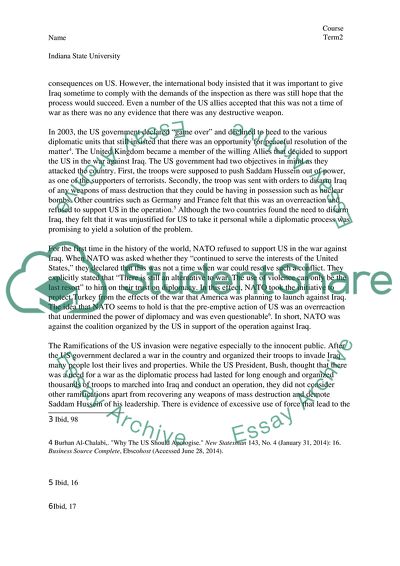Cite this document
(The US Invasion in Iraq in March 2003 Coursework, n.d.)
The US Invasion in Iraq in March 2003 Coursework. https://studentshare.org/history/1832883-the-critical-thinking-paper
The US Invasion in Iraq in March 2003 Coursework. https://studentshare.org/history/1832883-the-critical-thinking-paper
(The US Invasion in Iraq in March 2003 Coursework)
The US Invasion in Iraq in March 2003 Coursework. https://studentshare.org/history/1832883-the-critical-thinking-paper.
The US Invasion in Iraq in March 2003 Coursework. https://studentshare.org/history/1832883-the-critical-thinking-paper.
“The US Invasion in Iraq in March 2003 Coursework”. https://studentshare.org/history/1832883-the-critical-thinking-paper.


